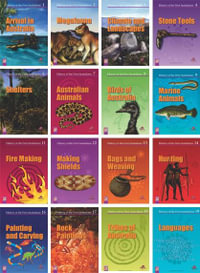Yarn Circles Wellbeing Cards have been designed to provide opportunities for students to talk about their feelings, emotions, thoughts and ideas in a safe, positive and collaborative environment. This process reflects the traditional Yarn Circles time that was such an important part of the culture of our First Nations' people. We see it as an extremely important ancient practice that is now fulfilling a very modern need.
Curriculum information:
ACARA F-10 General Capabilities supported by these cards: Personal and Social Capability; Literacy (interpret and use language confidently for learning and communicating); Aboriginal and Torres Strait Islander Cross Curriculum Priority (diversity of language, ways of life and experiences).
Yarn Circles Wellbeing Cards will provide opportunities for students to express themselves through oral language and therefore increasing the learning experiences. The activities are designed to help you draw on students' prior knowledge, circumstances, imagination, visual, aural, oral and written capacity to bring about increased understanding, acceptance, empathy, self awareness, self-worth and the opportunity for positive change.
Enrichment Activities On the back of every card, in the Further Activities section, you will notice that part a) always suggests that you read a story to the group which identifies with the key trait/value on the card. We have always suggested a current picture book which is readily available by all schools and which most schools should already have in their library. In the case of the SCARED card, we have suggested that you read aA"Lottie and Waltera to the students, however, if you have another example of a picture book or similar which demonstrates this trait, please, by all means, use what you have already. Some teachers make up their own 'story' for the word 'SCARED' or it could be a recount from a student about a scary situation which becomes the 'STORY'.
Following on from this, the Teacher Guide expands on this rich literature experience by exploring the trait/value further through oral language (Discussion Time), comprehension (Make the Connections and Think About the Text) and visual literacy activities (Visualise It). If you are not using the recommended picture book, you should still be able to use these activities to expand your studentsaac learning as they are general in nature.
























